The Gold Medal of Military Valor is an Italian medal established on 21 May 1793 by King Victor Amadeus III of Sardinia for deeds of outstanding gallantry in war by junior officers and soldiers.

Giuseppe Galliano was an officer of the Royal Italian Army, mostly known for his role during the First Italo-Ethiopian War. He perished in the Battle of Adwa and was posthumously awarded the Gold Medal of Military Valour.

Giovanni Romero (1841-1896) was an Italian colonel who participated in several conflicts during the 19th century. He participated in the Second Italian War of Independence and the Third Italian War of Independence, most notably leading the 4th Africa Infantry Regiment during the Battle of Adwa of the First Italo-Ethiopian War before being killed at the battle. Romero was also a posthumous recipient of the Gold Medal of Military Valour.
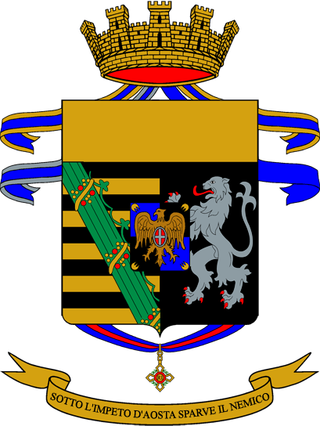
The 5th Infantry Regiment "Aosta" is an active unit of the Italian Army based in Messina in Sicily. The regiment is part of the Italian army's infantry corps and operationally assigned to the Mechanized Brigade "Aosta".
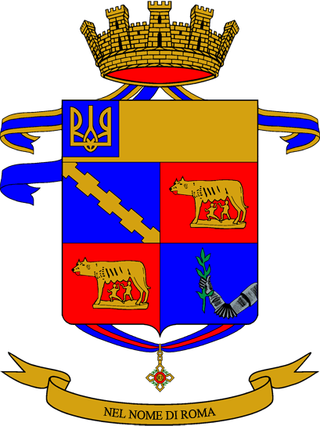
The 80th Regiment "Roma" is an active unit of the Italian Army based in Monte Romano in Lazio. The regiment is named for the city of Rome and was part of the Italian Army's infantry arm until 2004, when it became a training unit and was redesignated as a "multi-arms unit" and designated 80th Volunteer Training Regiment "Roma". In December 2023 the regiment became a training support unit at the Monte Romano training range with the new name 80th Regiment "Roma".
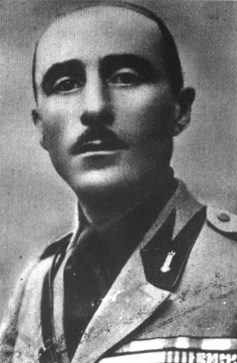
Enrico Francisci was an Italian Blackshirt general during World War II.
Augusto Ugolini was an officer in the Royal Italian Army during World War II, best known for his leadership during the battle of Culqualber, for which he was awarded the Gold Medal of Military Valor.

Domenico Turitto was an Italian major who was part of the Royal Colonial Corps of Eritrea. He participated in the Mahdist War as he commanded the 1st Indigenous Infantry Battalion, occupying the city of Kassala and distinguishing himself at the Battle of Kassala. During the First Italo-Ethiopian War, Turitto commanded the vanguard of the Indigenous brigade under the command of Matteo Albertone before being killed in the battle. He was also a recipient of the Silver and Bronze Medals of Military Valor and a knight of the Order of Saints Maurice and Lazarus.
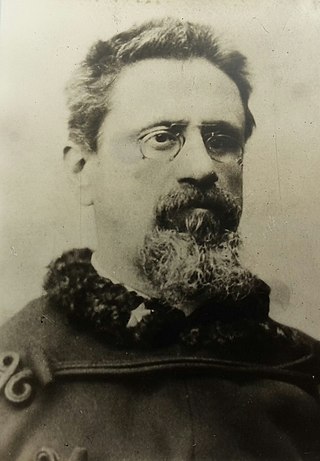
Cesare Airaghi (1840-1896) was an Italian colonel and war hero who participated in several conflicts during the 19th century. Airaghi participated in the Second Italian War of Independence, the Third Italian War of Independence and the First Italo-Ethiopian War before being killed at the Battle of Adwa.
Giuseppe Pavone was an Italian general during the interwar period and World War II.

Trentino La Barba was an Italian soldier and Resistance fighter during World War II.

Francesco De Rosa (1853-1896) was an Italian major of the First Italo-Ethiopian War. He commanded the 1st Artillery Brigade during the Battle of Adwa and was a posthumous recipient of the Gold Medal of Military Valor for his brave service in the battle before being killed in action.
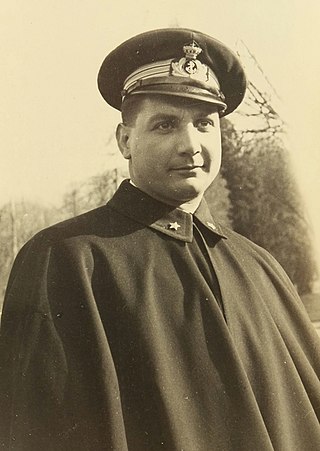
Alfeo Brandimarte was an Italian naval officer and Resistance member during World War II.

Leopoldo Cesare Prato was an Italian major of the First Italo-Ethiopian War. He commanded the 6th African Infantry Battalion during the Battle of Adwa before being killed in the battle. He was also a posthumous recipient of the Gold Medal of Military Valor for his service in the battle.

The 13th infantry Regiment "Pinerolo" is an active unit of the Italian Army based in Bari in Apulia. The regiment is named for the city of Pinerolo and part of the Italian Army's infantry arm. On 1 October 2022, the name, flag and traditions of the regiment were assigned to the Command and Tactical Supports Unit "Pinerolo" of the Mechanized Brigade "Pinerolo". On the same day the unit was renamed 13th Command and Tactical Supports Unit "Pinerolo". The regiment was formed on 19 December 1821 by the Royal Sardinian Army as Brigade of "Pinerolo", with the troops of the Brigade of "Saluzzo", who had remained loyal during the revolt in Piedmont in spring 1821 and were retained in service after the Brigade of "Saluzzo" was disbanded on 31 May 1821. Later the Royal Italian Army allowed the two regiments of the Brigade "Pinerolo" to claim the traditions and honors of the Brigade of "Saluzzo", for which reason the regiment's founding year is today considered to be 1672.

Corrado Mazzoni was an Italian Lieutenant of World War I. He was an officer within the 67th Infantry Regiment and took part in the Tenth Battle of the Isonzo and the Eleventh Battle of the Isonzo before succumbing to wounds during a siege at Veliki Hrib. He was a posthumous recipient of the Gold Medal of Military Valour for his service during the war.

The 92nd Infantry Regiment "Basilicata" is an inactive unit of the Italian Army last based in Foligno. The regiment is named for the region of Basilicata and part of the Italian Army's infantry arm.
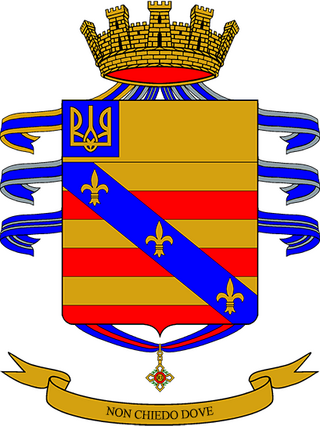
The 89th Infantry Regiment "Salerno" is an inactive unit of the Italian Army last based in Salerno. The regiment is named for the city of Salerno and part of the Italian Army's infantry arm.

The 84th Infantry Regiment "Venezia" is an inactive unit of the Italian Army last based in Falconara Marittima. The regiment is named for the city of Venice and part of the Italian Army's infantry arm.

The 63rd Infantry Regiment "Cagliari" is an inactive unit of the Italian Army last based in Albenga. Formed in 1862 the regiment is part of the Italian Army's infantry arm and named for the city of Cagliari in Sardinia.

















